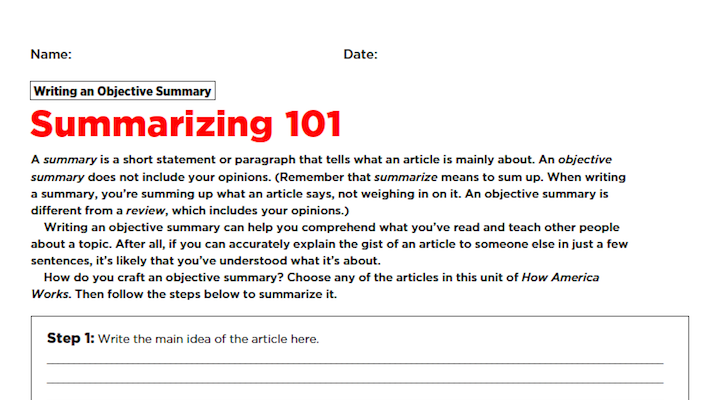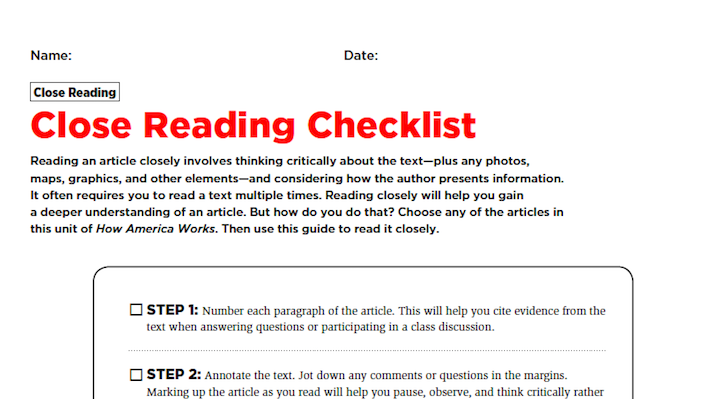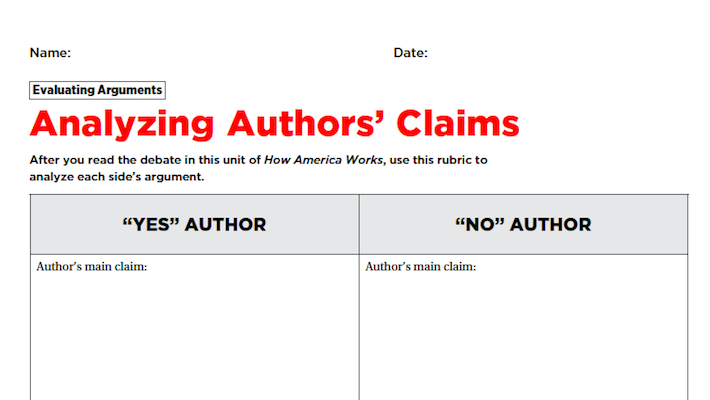Major Concepts
• Written in 1776, the Declaration of Independence announced to the world the American colonies’ decision to break away from British rule.
• The Declaration outlined some of the basic principles of the new United States, including the ideas that “all men are created equal” and that all people are entitled to certain basic rights.
• The American colonists said the key reasons they were forced to resort to revolution were their lack of representation in the British government and their desire to make their own laws and control their own destiny.
Discussion Topics
1. Do you think the United States has lived up to the Declaration’s ideas that “all men are created equal” and that all people have the right to “Life, Liberty and the pursuit of Happiness”? Why or why not? Which groups of people weren’t included in 1776? How has that changed since 1776?
2. Do you think the colonists were justified in their decision to declare independence from Great Britain? Was Britain treating the American colonies unfairly? Does the Declaration do a good job of explaining the colonists’ reasons for revolution?
3. As the colonists celebrated their freedom from British rule after the Revolution, hundreds of thousands of black Americans remained enslaved. How do you think they felt about the Revolution and its aftermath?
4. Some delegates to the Continental Congress wanted to include anti-slavery language in the Declaration. However, they compromised with pro-slavery delegates and eliminated all mentions of slavery to ensure the Declaration's approval by all 13 colonies. What were the implications of this compromise? What long-term effects has this compromise had on the United States?
5. Think about the story of Sybil Ludington (see p. 15). Can you imagine yourself in a situation like hers? How might you have felt?
Activity: Rewrite the Declaration of Independence
1. DISSECT & DISCUSS:
Break students into small groups and give each group a copy of the Declaration.
Ask them to read it carefully, look for places where they feel it could be improved, and draft new language to reflect their proposed changes. For example, could the language be more inclusive of different groups? Knowing what we know more than two centuries later, are there ideas and concepts the delegates should or shouldn’t have included?
2. PERSUADE:
Like the delegates to the Continental Congress, group members must persuade each other and make compromises to settle on proposed changes to present to the class.
3. PRESENT & COMPARE:
Have each group present its revisions to the entire class and discuss the results. Did the different groups come up with similar changes? What changes stood out?
Skills Library
Header image: Zohar Lazar for Scholastic Inc.





